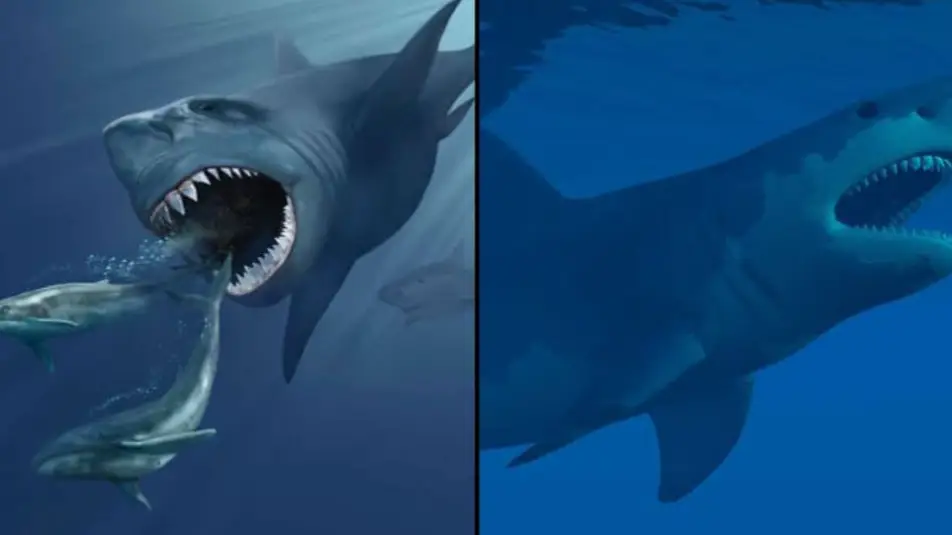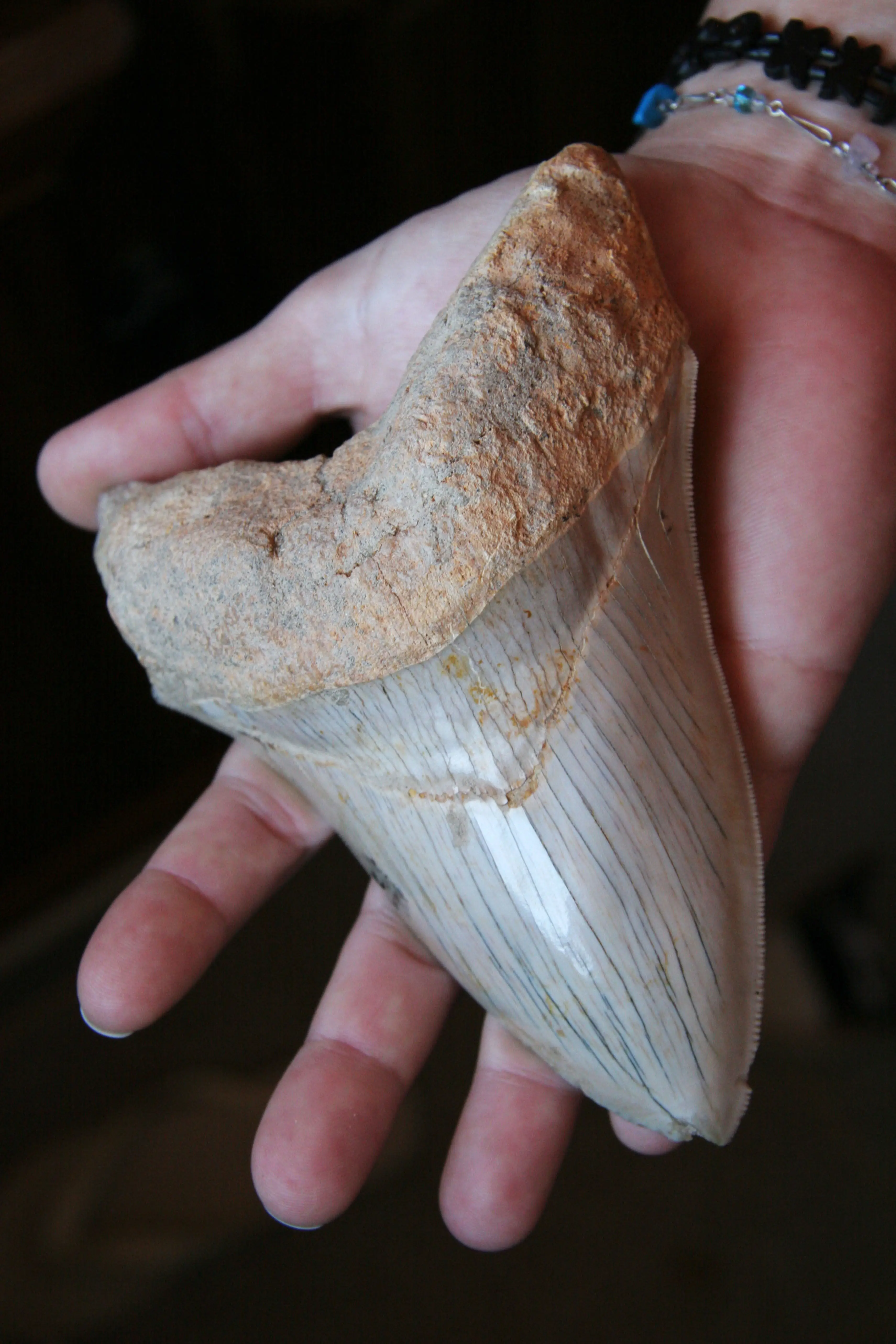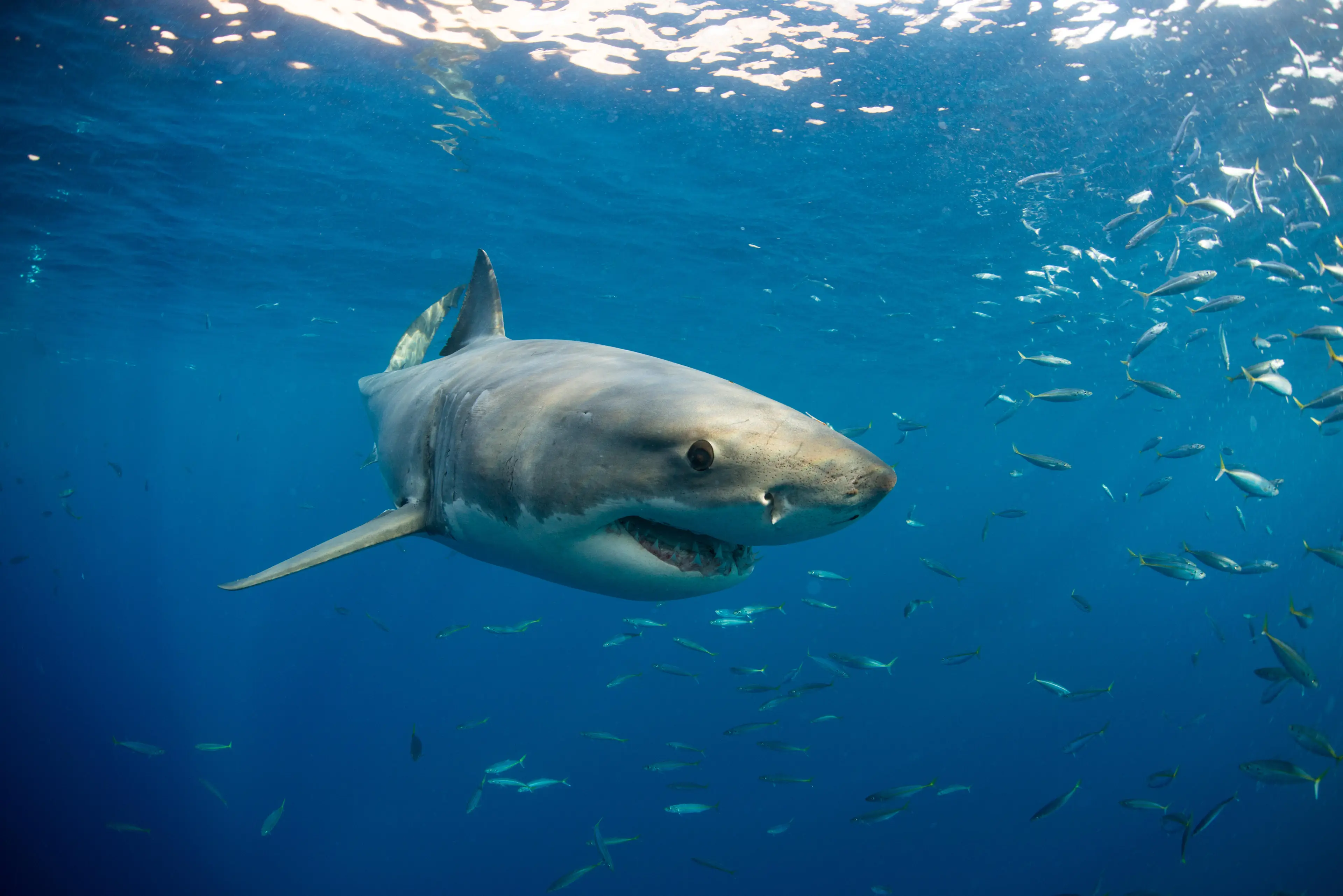
Though the 2018 film The Meg argued otherwise, megalodon sharks are indeed extinct, and a new paper appears to solve the mystery of why.
Fans of the dramatic sci-fi movie will be all too familiar with the fact that megalodon sharks were absolutely massive, with teeth the size of a human hand and bodies which could span more than 50 feet long.
They were the biggest sharks around when they swam the oceans approximately 20 million years ago, so it's hard to imagine why they would ever go extinct. However, the new paper published in Nature Communications suggests the megalodon might have fallen to one of its own kind.

Advert
Megalodon co-existed with great white sharks, which still exist today. Both species are thought to have preyed on the same kind of animals, and the new paper suggests the competition for food may have been the reason the megalodon went extinct.
Though megalodon were almost four times bigger than the great white sharks in our oceans today, that doesn't necessarily mean they dominated the ecosystem.
In an email to CNN, study author Kenshu Shimada, a professor of paleobiology at DePaul University in Chicago and research associate at the Sternberg Museum of Natural History in Kansas, said: "Megalodon is typically portrayed as a super-sized, monstrous shark in novels and films, but the reality is that we still know very little about the extinct shark."
"Our new study shows that the dietary range of the early Pliocene great white shark is very similar to that of megalodon, indicating that our data do not contradict the competition hypothesis," Shimada continued.

In order to figure out where the sharks sat in the food chain, the scientists involved in the study used a new method that involved analysing dietary signatures in the teeth of 13 extinct shark species and 20 modern sharks.
As zinc isotope levels in the teeth of present-day mammals indicate their place in the food chain, the researchers looked at the food web created by the zinc levels in the ancient teeth and found that great white sharks and megalodons had something in common.
Jeremy McCormack, a geoscientist at the Max Planck Institute for Evolutionary Anthropology in Germany and an author of the new paper, told The New York Times: "We have the same range of zinc isotope values in great white sharks, in the same locality, as the megalodon. It’s super interesting. They are obviously very different in size, but that implies that they have an overlap in their prey species.”
The study marked the first time fossilised shark teeth were proven told hold zinc isotopes related to diet, and the technique could be applied to other extinct animals to help understand their diet and ecology.
Topics: Science, Animals, Environment